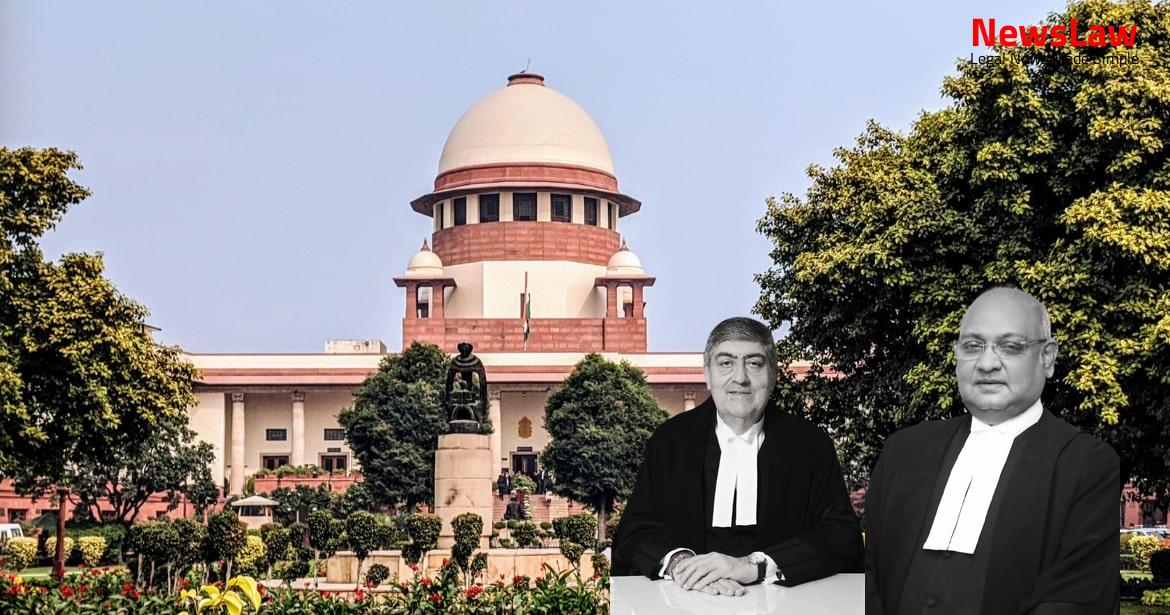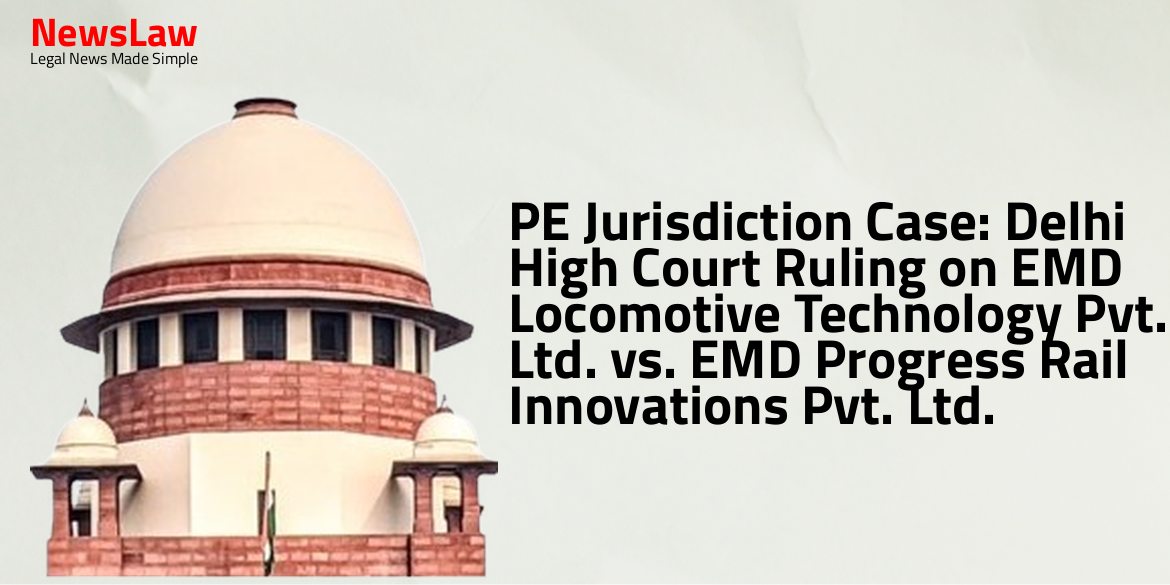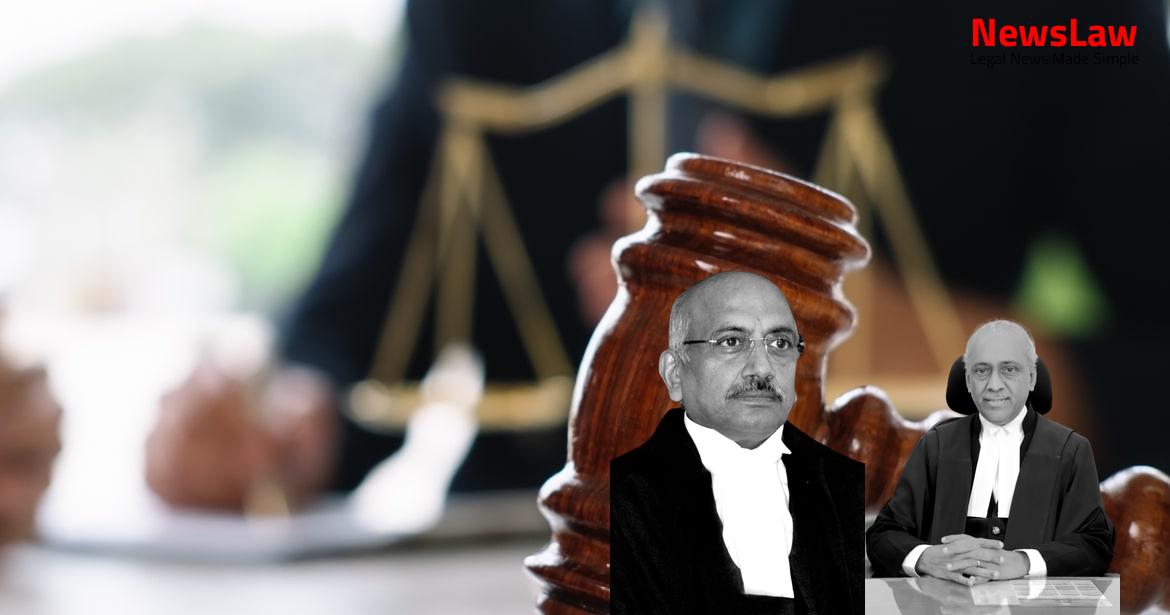A recent legal case delved into the intricate analysis of the limitation period for pre-emption rights, shedding light on the complexities of property law. The court’s meticulous examination of the issue highlights the need for a clear understanding of legal timelines and the implications they hold in disputes over property transactions. Let’s explore the significance of the court’s interpretation in upholding justice and legal clarity.
Issue
- The specific issue in this appeal is the commencement of limitation period for pre-emption under the Rajasthan Pre-Emption Act, 1966.
- The question is whether the limitation period begins from the first sale deed after the Act came into force or from a subsequent sale, based on Article 97 of the Limitation Act, 1963.
Also Read: Supreme Court Judgment on Single Till Mechanism for HRAB Calculation: A Comprehensive Analysis
Arguments
- Learned counsel referred to the judgment in Prahlad Kumar vs. Kishan Chand & Ors.
- The petitioner’s argument was supported by citing this case.
- The judgment in Prahlad Kumar vs. Kishan Chand & Ors. was used as a reference to strengthen the petitioner’s contention.
Analysis
- The right of pre-emption is a right of substitution, not repurchase.
- The pre-emptor must have a superior right to that of the vendee at the time of exercising the right.
- The right of substitution can be defeated by legitimate methods such as allowing a claimant of equal or superior right to be substituted.
- The right must be exercised within one year from the date of sale or when physical possession is taken by the purchaser.
- The right is considered weak and can be lost if not exercised within the stipulated time period.
- Previous judgments have established that the right of substitution must be invoked only at the first instance and does not continue indefinitely for each sale.
- The loss of the right of pre-emption on transfer is detailed in Section 9 of the Act.
- The law does not support the recurring exercise of the right of substitution for every sale transaction, especially if the pre-emptor has waived the right in the past.
- The right of pre-emption is defined in Section 3 of the Act and further elaborated on in Section 6 regarding the classes of persons to whom the right accrues.
- The judgment discusses the historical perspective of the right of pre-emption and its origin in Mohammedan rule customs.
- The analysis emphasizes that the right of pre-emption should not be considered a recurring right once waived by the pre-emptor over a specific property in a previous transaction.
- The right of pre-emption was found to have been waived by the conduct of the plaintiff’s father.
- The plaintiff did not show willingness to purchase the right when the third party sought to transfer it due to insufficient means.
- The right of pre-emption is considered weak and can be given up without objection to a sale in favor of a third party.
- Limitation to enforce the right of pre-emption is governed by Article 97 of the Limitation Act, 1963 read with Section 21 of the Act.
- Each sale deed is considered a separate cause of action.
- The seller is required to inform all persons of the price proposed for the sale, as per Section 8 of the Act.
- If the right of pre-emption is not exercised, there is no provision in the Act prohibiting it for a subsequent sale.
- The right of pre-emption is based on substitution in place of the vendee upon payment of the price.
- Waiving the right of pre-emption estops the plaintiff from claiming it in a subsequent sale.
- Various cases were cited to support the stance that failing to challenge an earlier sale deed results in the inability to claim pre-emption for subsequent sales.
- Mahmood, J. referred to this case to emphasize the importance of maintaining the independence and impartiality of the judiciary.
- The judgment highlighted the need for judges to dispense justice fairly and without bias or influence.
- The case served as a reminder of the judiciary’s role in upholding the rule of law and ensuring justice for all.
- The period of limitation for a suit to enforce the right of pre-emption under this Act is one year from certain specified events.
- Notice must be given to all persons with a right of pre-emption when selling or foreclosing immovable property.
- The notice must be served through the civil court and include detailed information about the property and the parties involved.
- The limitation period for suits to enforce pre-emption rights accrued before the commencement of the Act shall not exceed one year from the Act’s commencement.
Also Read: Selection and Appointment of Judicial Officers in Himachal Pradesh
Decision
- The appeal was allowed
- Parties to bear their own costs
- Legal battle that began 45 years ago has ended
Case Title: RAGHUNATH(D) BY LRS. Vs. RADHA MOHAN (D) THR. LRS. (2020 INSC 590)
Case Number: C.A. No.-001442-001442 / 2016



